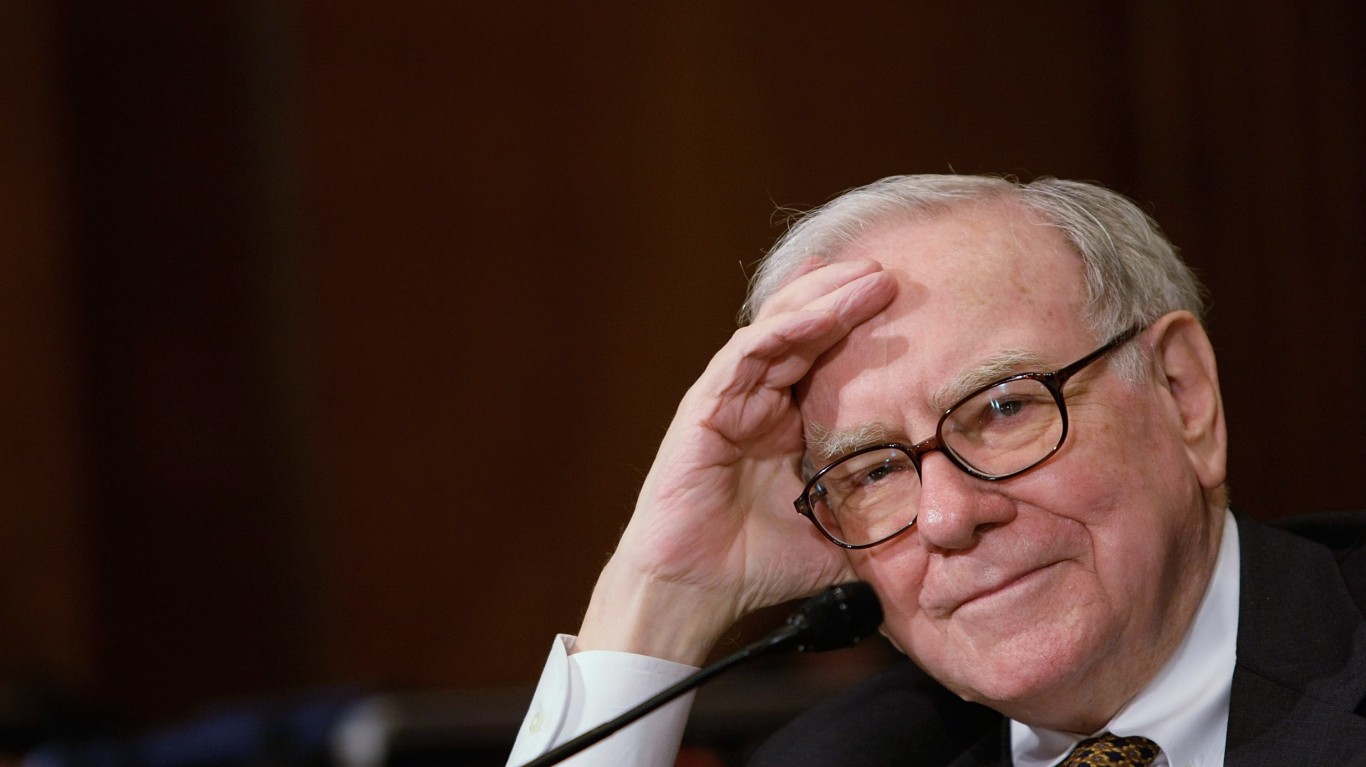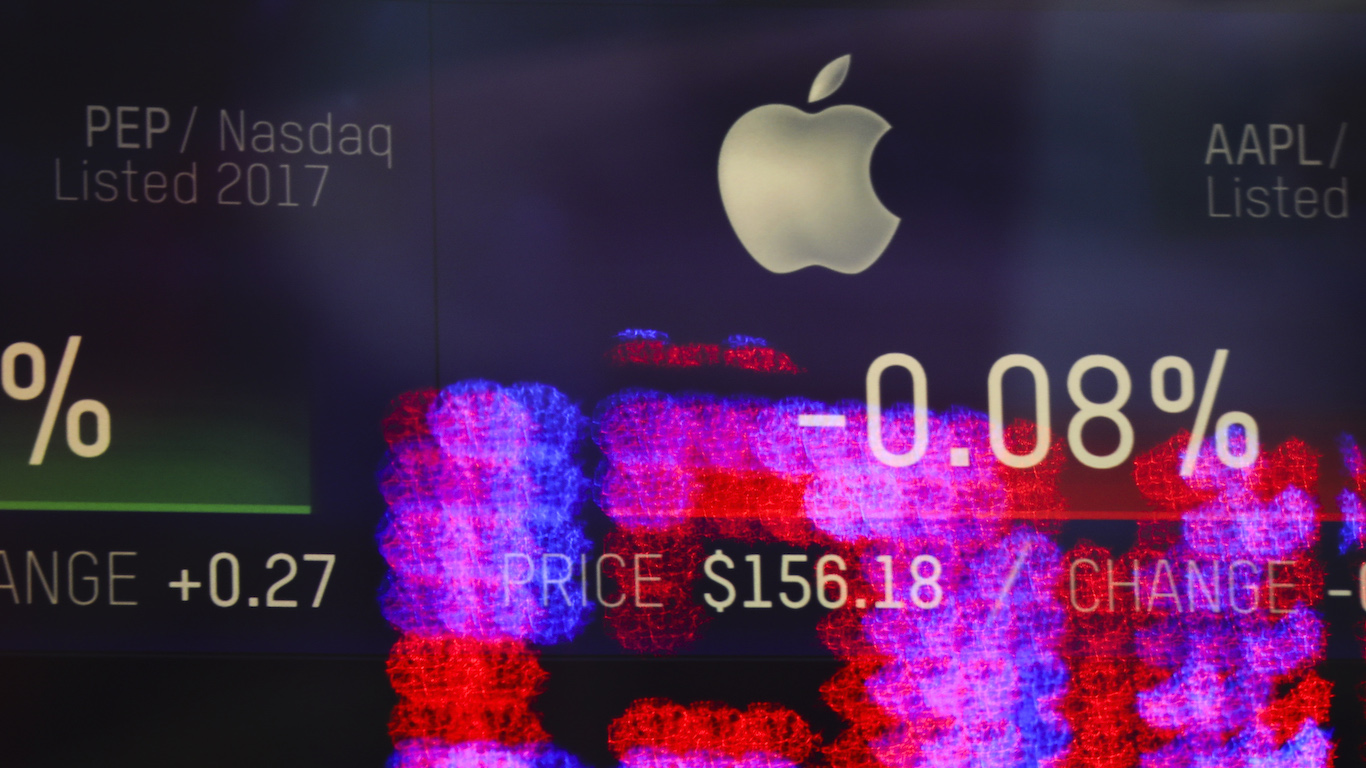Investing
Famous Billionaire Is Selling This AI Stock and Buying Another Stock that May Soar Up to 30.06%, According to Certain Wall Street Experts

Published:

Warren Buffett is among the greatest investors of all time, and his Berkshire Hathaway (NYSE:BRK.B) is among the most notable portfolio companies in the market. Largely viewed as a holding company for a wide range of wholly-owned subsidiaries and equity positions, Berkshire and its publicly-traded portfolio get plenty of attention, given Buffett’s outsized returns he’s generated during his tenure as CEO over the past six decades.
Berkshire’s portfolio moves are closely-watched not only by those who admire Buffett (I’d count myself among such investors) but long-term investors looking to identify potential medium to longer-term trends.
Thus, Buffett’s decision to reduce his stake in Apple (NASDAQ:AAPL) and Bank of America (NYSE:BAC), accumulating a cash hoard of roughly $300 billion, has some investors scratching their heads. Indeed, the timing of these sales came just before an AI-driven rally took Apple stock to a new all-time high, and the position Buffett has chosen to beef up – his Occidental Petroleum (NYSE:OXY) stake – hasn’t performed nearly as well.
Let’s dive into why the Oracle of Omaha added more shares of this oil & gas giant this past quarter, and where the energy giant may be headed from here.

Warren Buffett’s recent decision to sell a significant portion of Berkshire Hathaway’s shares in Apple has certainly raised eyebrows in the investment community. There are certainly many investors who bought Berkshire in the past as an Apple proxy – that’s because for years, Berkshire’s value was comprised of mostly Apple stock (making up more than 50% of Berkshire’s publicly-traded portfolio), with a range of durable cash flow producing businesses surrounding this growth name.
But with the removal of Apple as a massive position in Berkshire’s portfolio, and cash now becoming one of the largest positions in this portfolio, some investors may rightly be thinking of moving on.
After all, with Buffett shifting his focus to companies like Occidental that have underperformed on a relative basis of late, one has to wonder if Mr. Buffett has lost his touch. He’s acquired more than 28% of Occidental’s outstanding float, a significant sum even for the ultra-conservative billionaire investor.
It’s becoming clear that Buffett is returning to his value roots, and looking for companies with some of the more attractive valuation multiples and margins of safety in this market. And, with an incoming Trump presidency on the horizon, tailwinds may be behind the oil & gas sector to a much greater degree than the tech sector.

Again, the shifting political landscape is a clear reason most investors are exploring sectors that may have fallen out of favor over the past four years. Despite relative underperformance over the past year, the outlook for many top energy names is much more positive today than it was three months ago. Occidental lost ground over the past year, but is up nearly 8% to start the year, as many investors are clearly rebalancing their portfolios in favor of heavier energy positions.
Additionally, it’s worth pointing out that Apple’s sales have increasingly become concentrated, with more than half of the company’s revenue coming from iPhone sales. A slowdown in the smartphone market or a decline in iPhone sales could severely impact the company’s financial performance. Analysts have expressed concerns that current bullish forecasts for iPhone sales might lead to negative comparisons in the following year, potentially causing a drop in stock prices. On the other hand, Occidental is among the energy majors with a very integrated and diversified business model, generating revenue and cash flows from various business lines.
To add, Apple’s high valuation has become cause for concern for many investors. And while Apple’s stock has seen substantial appreciation (a nearly 60% increase in 2024), this has led to a very inflated multiple, and one Buffett is clearly not comfortable with. Personally, if Buffett isn’t comfortable with a valuation multiple, I think most value investors will follow suit in looking for better options. Occidental appears to be one of the Oracle’s most sought-after picks, at least right now.

Buffett’s selling activities reflect his assessment of Apple’s current valuation relative to its business performance. Despite Apple’s strong brand and loyal customer base, the company’s hardware sales have faced stagnation over the past two years, impacting its overall growth prospects. When Buffett first invested in Apple in 2016, the stock traded at a valuation of 10-12 times earnings per share. However, today this valuation is a lot closer to 38-times.
Yes, Apple has retained its status as a growth stock (at least from a capital appreciation standpoint). But for investors looking for meaningful underlying cash flow growth, companies like Occidental may be better bets over the next five to 10 years. That appears to be the view Buffett and others are taking, at least.
Additionally, it’s worth pointing out that Buffett’s broader selling strategy appears to indicate a cautious outlook on the stock market as a whole. With Berkshire sitting on over $325 billion in cash reserves after these sales, it appears that Buffett is finding it challenging to identify appealing investment opportunities amid historically high market valuations for companies like Apple.
The thought of burdening your family with a financial disaster is most Americans’ nightmare. However, recent studies show that over 100 million Americans still don’t have proper life insurance in the event they pass away.
Life insurance can bring peace of mind – ensuring your loved ones are safeguarded against unforeseen expenses and debts. With premiums often lower than expected and a variety of plans tailored to different life stages and health conditions, securing a policy is more accessible than ever.
A quick, no-obligation quote can provide valuable insight into what’s available and what might best suit your family’s needs. Life insurance is a simple step you can take today to help secure peace of mind for your loved ones tomorrow.
Click here to learn how to get a quote in just a few minutes.
Thank you for reading! Have some feedback for us?
Contact the 24/7 Wall St. editorial team.